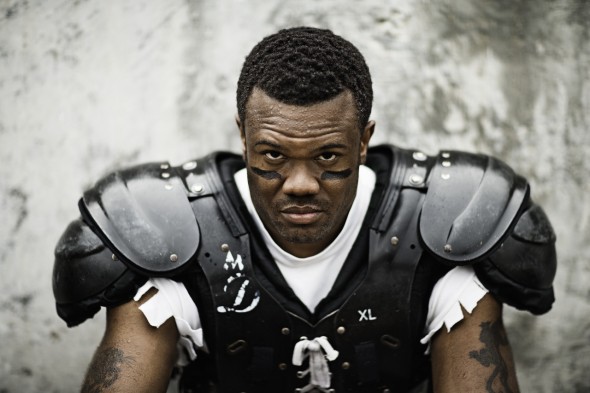 In general, we see many high-performance athletes do things right. Let’s see why.
In general, we see many high-performance athletes do things right. Let’s see why.
For example, Michael Phelps, the most successful swimmer of all time. Usain Bolt, equally important and winner of medals in 100 or 200 meters. These athletes always seem to get their way, both physiologically and psychologically. Other cases such as NFL players who have other pressure, but also overcome.
It should be noted that these athletes take different attitudes, perhaps in contrast to each other, before a competition. Phelps, for example, can be seen sitting, serene and listening to music before swimming. While we see Bolt take a more jocular attitude of the situation, as when he celebrates imitating a Mexican fighter. Still, both forms are effective.
Here, sports psychology plays an important role in its preparation and maybe the reason for its success.
What happens when an athlete loses a competition?
Who among us has not seen important sporting events, such as finals or others, in which, in the case of a team that loses the game, the heads down, look defeated, and surely wondering why they did not win if they reached that stage.
Maybe they were very accommodating, or maybe they waited or trusted too much. In turn, perhaps the psychology of sport can explain why many times the favorites or more experienced are those who lose when they expect otherwise.
At the same time, they feel confident before an important tournament or race, it is not for less, but when they lose after all the effort they made, they are devastated. It is here that sports psychology also comes into play, in particular, to cope with such an important defeat before the next event.
Adopting sports psychology
Currently and increasingly, the change and perfection to which such mental power leads to handle certain situations are noted.
- Elite athletes are increasingly adopting sports psychology. At the same time, more and more people and coaches and the people around them know the importance of this matter.
- The study and practice of mental preparation is essential to temper the character.
- Identification of strategies and techniques that athletes can recreate and use them to the fullest in their performances.
- The relationship with stress and dealing with setbacks helps athletes try again to achieve their goals.
What is inside the mind of a winner?
Let’s see what kind of factors are related to the success of the athletes.
- Motivation: It demonstrates the effort and willingness that lead to winning an event. Many times no motivation is not enough, but there are other aspects. It is very important to set attainable goals. There is an acronym quite used by psychologists, scientists, etc.:
SMARTER
SPECIFIC
MEANINGFUL
AGREED
RELEVANT
TIME-SPECIFIC
ENGAGING
RECORDED
- Confidence: It seems to be ubiquitous in high-performance athletes. There are many strategies they use to boost their confidence in skills, training, and preparation. This aspect also comes into play:
- Experience
- Modeling: Observation to have a model or blueprint for optimal performance.
- Imagery: Strategy used by many athletes:
- Find quiet places
- Imagine the game or the race
- Imagine the sensations
- Imagine “what ifs” to visualize some type of contingency that may appear
- Internal dialogue: It ca be used to boost motivation. We can also name:
- Focusing – important cues
- Motivational (“let’s go!”, “You can!”)
- Calming (“relax”, “breathe”, “calm”)
ü Positive feedback from coaches is also important for getting the right attitude.
- Performance knowledge: Knowing the sport that is practiced from the inside out is important, as well as knowing the rivals with their weaknesses and strengths.
- Routines: Athletes are particularly good with routines, putting themselves in the right mind situation.
- Anxiety management: This is another characteristic of athletes, as well as capitalize moment under pressure to use them and achieve greater performance. Among some relaxation techniques we can mention:
- Stretching
- Breathing
- Muscles
- Meditation
- Music
Summing up
Currently, much focus is being placed on how psychology, among other methodologies, favors the overall performance of athletes. Even if you are not an athlete and you are just an observant, placing your SuperBowl bets on BetAmerica.com, you still need to have some skills that you can learn from the athlete’s behavior.
Although with the passage of time new doors are opening to the knowledge of physical and mental abilities, much research is still needed, in the field of neuroscience.
It takes a lot of work and effort to get what athletes get. These achievements are full of good and bad experiences, but knowing or understanding how to take advantage of different circumstances is essential for good sporting performance. Have you thought about what we can achieve if we concentrate and use all the energy in our favor?

























